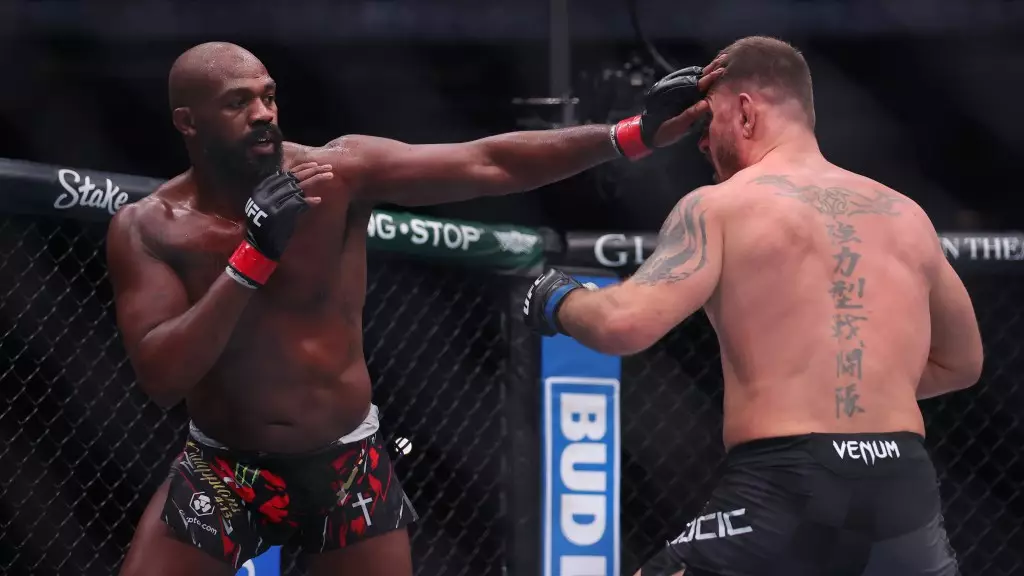In the world of mixed martial arts (MMA), particularly within the Ultimate Fighting Championship (UFC), rankings hold significant weight in shaping a fighter’s legacy and career trajectory. These rankings are not merely numbers; they reflect the fighters’ performance, public perception, and the opinion of an independent panel that reviews them after each event. Jon Jones, one of the most talked-about figures in sport, recently found himself at the center of this ranking discussion, particularly following UFC 309, where he successfully defended his heavyweight title against Stipe Miocic.
Jon Jones, who boasts a record of 27 wins, one loss, and one no contest, has long been considered by many as the greatest MMA fighter in history. However, his placement as the No. 2 fighter in the UFC’s pound-for-pound list has sparked debate, contrasting starkly with UFC CEO Dana White’s belief that Jones should be ranked No. 1. What makes this ranking particularly intriguing is not just the numbers but also Jones’ age—37 years old—and his apparent contentment with being second best in a sport constantly evolving and dominated by younger athletes.
Jones took to social media to express his feelings about his ranking. He stated, “Being ranked number 2 pound per pound at 37 years old, I’m happy with that.” This reaction reveals a sense of humility and acceptance that is often lacking in the fiercely competitive realm of sports. In a landscape where fighters are always vying for supremacy, Jones’ acknowledgment of his ranking speaks volumes about his character and maturity.
At the top of the pound-for-pound rankings sits Islam Makhachev, the UFC lightweight champion. Makhachev’s rise to fame and dominance in his division highlights the generational shifts happening in MMA. While both fighters have impressive track records, their paths illustrate different eras within the sport. Makhachev, representing the new wave of talent, juxtaposes Jones’ legacy, which has been built over years of competition in the octagon.
Jones’ prior transition from the light heavyweight division to heavyweight—culminating in his title win against a powerful competitor like Francis Ngannou—emphasizes the lengths he has gone to maintain relevance and dominance. His only official loss was tied to a disqualification, a point that many MMA enthusiasts use to argue that he has, in fact, remained undefeated throughout his career. This aspect of his journey adds layers to the conversation about what truly defines a fighter’s greatness.
The implications of age in combat sports cannot be understated. At 37 years old, Jones is not only the oldest in the top rankings but also a symbol of longevity in an arena often unforgiving to aging fighters. His continued success serves as inspiration for many, showcasing that with experience often comes wisdom and tactical superiority, factors vital in high-stakes matchups.
The dialogue surrounding Jon Jones’ placement in the UFC rankings reflects deeper themes of legacy, generational shifts in fighting styles, and the subjective nature of “greatness” in MMA. While the rankings may seem like a superficial conflicting point between Jones and White, they resonate with the broader narratives of ambition, endurance, and personal acceptance in the pursuit of excellence. As the sport evolves, so too will the discussions surrounding its most decorated athletes.

